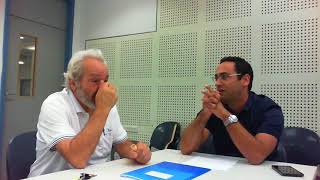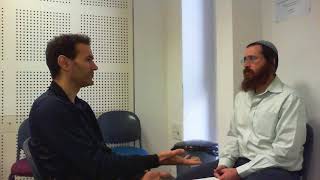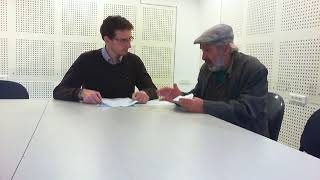Background (111-030-06-0) Rami and Yigal
The patient, a retired accountant has been showing early signs of dementia affecting mainly his short term memory and his concentration. He previously visited this doctor with a shopping list of items- among them a urinary tract infection for which treatment was prescribed..
He now returns to the doctor after being hospitalized with acute uro-sepsis during which time there appeared a transient worsening of his mental status: confusion, hallucinations, etc.,
He is particularly anxious about the terminology “cognitive changes” used in the discharge summary in light of the fact that his older brother is suffering from Alzheimer’s disease.
The action
The patient opens the interview with a 4 minute monologue about how he was hospitalized, and about three issues that concern him as a result of the hospitalization: the vitamins his nephew sold him as a wonder cure just prior to his hospitalization, the suggestion that he may now have early dementia, and his planned trip to France.
The doctor responds with a clear explanation of the uro-sepsis and the need for treatment and and a urology consultation re his prostate, When pressed by the patient to discuss the cognitive issue the doctor attempt to reassure the patient that the problem need not be dementia at all.
Educational opportunities
- The doctor’s long silence during the opening monologue is truly exceptional and worth discussing. On the one hand, it allowed him to learn a lot about what the patient was feeling and his agenda. On the other hand, even micro responses could have allowed him to make better use of the material arising in monologue. How could he have responded, to what purpose and at what potential cost.
Re. the doctor’s reassuring the patient about his cognitive state: discuss this as an episode requiring “breaking bad news”. Or: how might this have been done differently and with what purpose in mind?
The doctor responds nicely to the “concept” aspect of CASE; how about the other 3 aspects:
Were they given expression in the video? [Yes] Rate the doctor’s responses on “the scale of responses”



